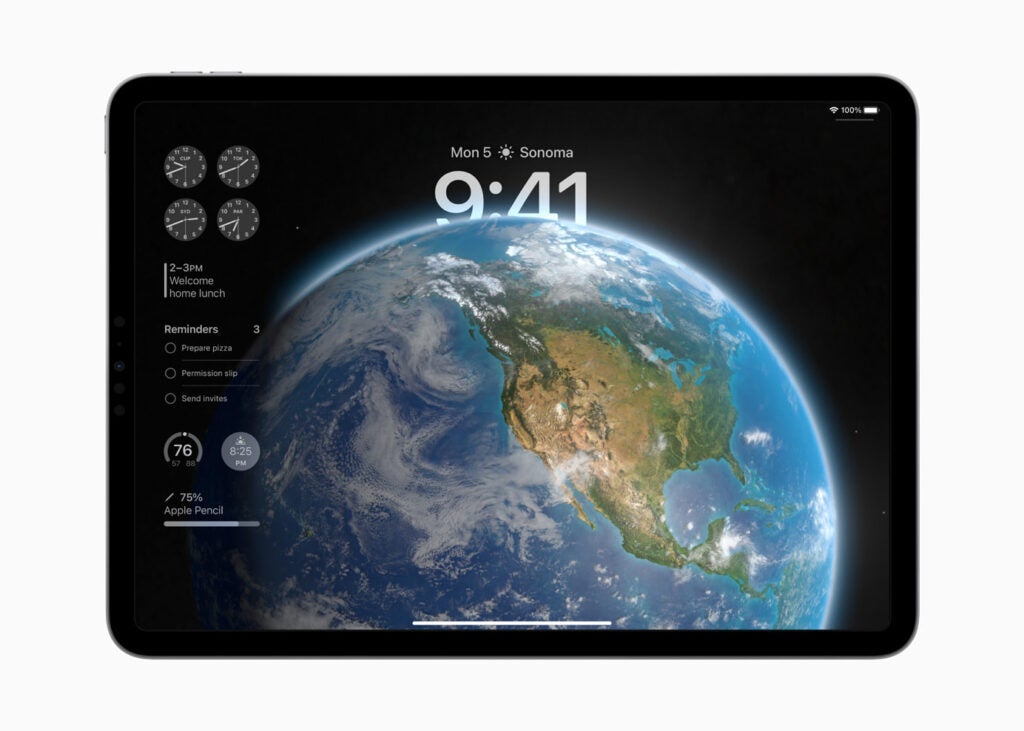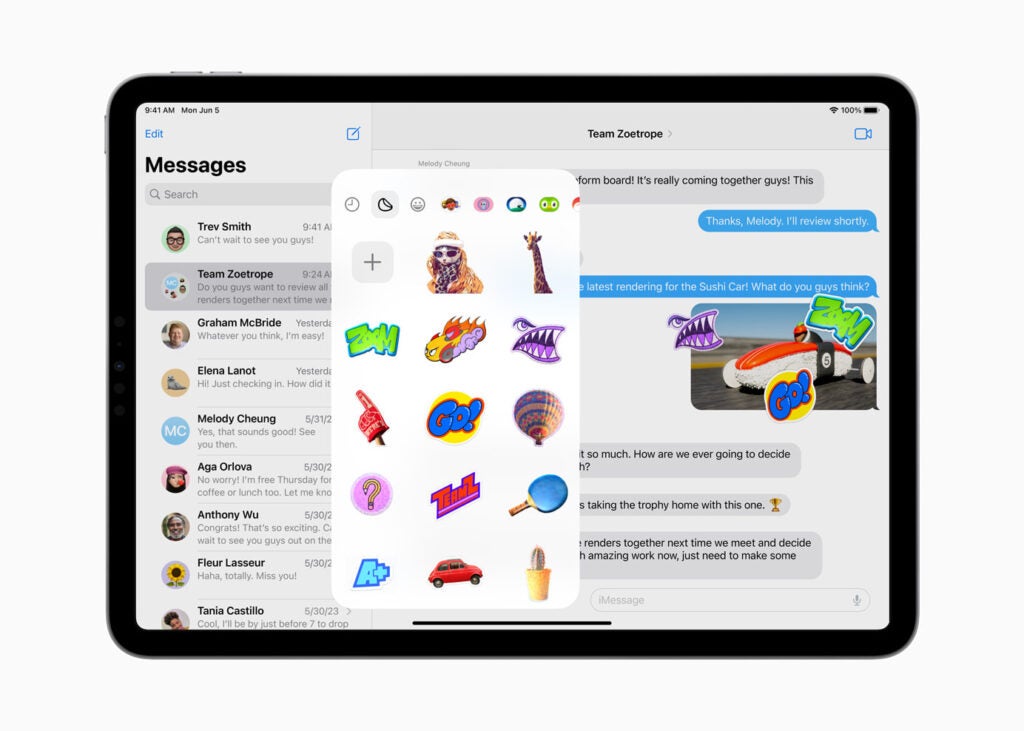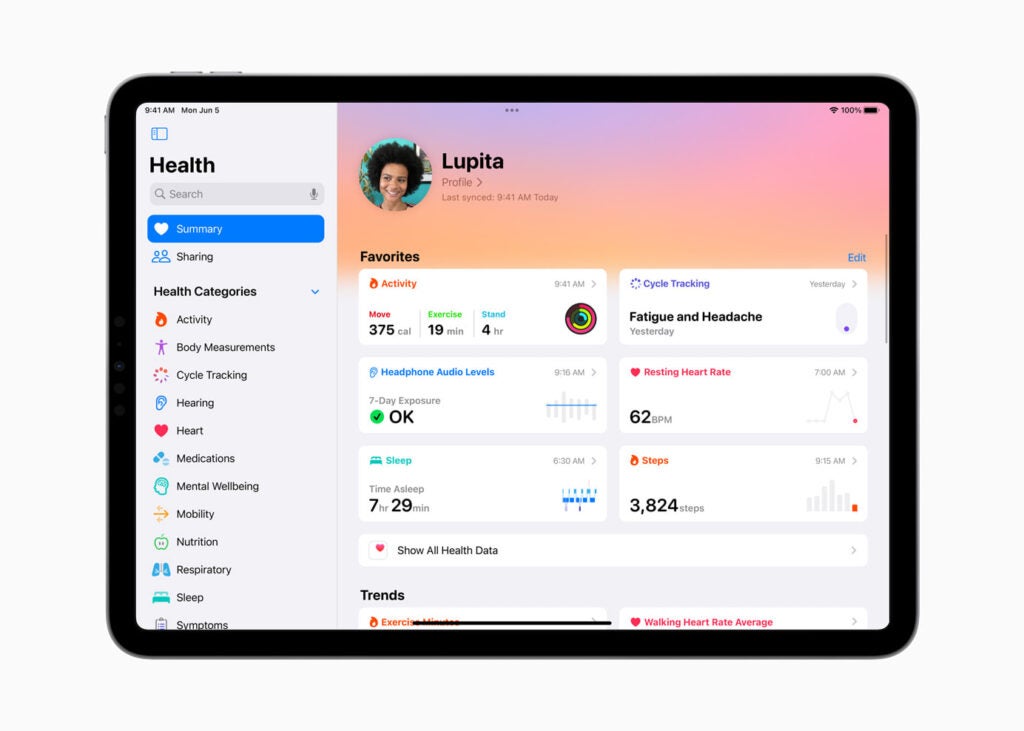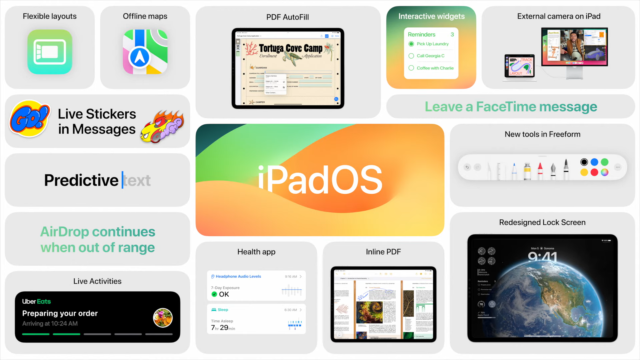This year’s big iPadOS update is almost here. Read on to discover everything you need to know about iPadOS 17.
iPadOS 17 had its grand reveal at WWDC 2023 in early June, with a plethora of developer and public betas released throughout the summer to get apps ready and iron out any kinks in the software. With Apple confirming an event in mid-September, we’re likely only weeks away from getting our hands on iPadOS 17.
For now, here’s all there is to know about iPadOS 17, including when it’ll be released, which of our best iPads will get the update and the key new features.
When will iPadOS 17 be released?
We got our first look at iPadOS 17 during Apple’s WWDC keynote on June 5 2023, with the developer beta rolling out that same day and a public beta due following in July 2023 for keen fans that can handle bugs and glitches.
But what about the rest of us? When will we see iPadOS 17 released to the public? Traditionally, iPadOS updates tend to appear around the same time as their iOS equivalents. That usually takes place in September, though it’s worth noting that iPadOS 16 was delayed until late October 2022 due to issues in development.
We’ve not heard about any issues this year, however, so it’s likely that iPadOS 17 and iOS 17 will both appear in September, likely a few days after the reveal of the iPhone 15 range.
With Apple sending out invites for an event due to take place on 12 September 2023 at 10am PT, it’s likely that we’re not too far away from its release. iOS 16 was released 5 days after last year’s event, suggesting that we could see iPadOS 17 arrive on or around 17 September 2023, but this is unconfirmed for now.
512GB Apple Mac Mini with M2 chip
Amazon is offering more than £70 off the uber-compact, uber-powerful 2023 Mac Mini with a very reasonable 512GB storage.
- Amazon
- Was £849
- Now £776
Which iPads support iPadOS 17?
Here is the full list of Apple tablets that’ll receive the iPadOS 17 update later this year:
Some older iPad models, like the iPad Pro 12.9-inch (1st generation), the iPad Pro 9.7-inch (1st generation), the iPad Pro 10.5-inch (1st generation) and iPad Pro 11-inch (1st generation) and the iPad (5th generation), are not supported in iPadOS 17.
What’s new in iPadOS 17?
New accessibility features
Apple actually unveiled a handful of accessibility updates come to its iPhone and iPad devices later this year a month ahead of WWDC. The list included features like Live Speech, Personal Voice and Point and Speak in Magnifier.
“Coming later this year, users with cognitive disabilities can use iPhone and iPad with greater ease and independence with Assistive Access; nonspeaking individuals can type to speak during calls and conversations with Live Speech; and those at risk of losing their ability to speak can use Personal Voice to create a synthesised voice that sounds like them for connecting with family and friends.”
“For users who are blind or have low vision, Detection Mode in Magnifier offers Point and Speak, which identifies text users point toward and reads it out loud to help them interact with physical objects such as household appliances”, wrote Apple in a newsroom post this May.
Customised lock screen
This year, the iPad is getting the same lock screen update the iPhone received with iOS 16.
This means that users can now create and personalise multiple lock screens with different wallpapers, font styles and widgets, adding a new layer of customisation to the tablet that was previously exclusive to iPhones.

Live Activities
Another iPhone-esque update coming to iPadOS 17 this year is Live Activities, a feature that allows users to see important information (such as the status of an UberEats order) at a quick glance. It’s a feature that’s tied to Dynamic Island on the iPhone 14 Pro and iPhone 14 Pro Max, but with the added screen real estate of iPads, it should come to most if not all.
Messages
The Messages app is also getting some key updates, including Live Stickers (think GIFs based on your images and videos )and improved predictive text that should stop those ducking annoying autocorrections. Fans of voice messages can also look forward to voice note dictation, allowing you to simply read incoming voice notes instead of listening to them.

Health app
This one’s a big one: iPad users can finally check their health information without taking out their iPhones as health data is stored on iCloud and available on the tablet, too.
It also includes a bunch of new features and functionality also coming to the iPhone as part of iOS 17, including new ways to monitor your mental health and visual health via standardised assessments run in the app.

AirDrop
AirDrop will now allow you to share contact information with a friend by holding two iPads together via a new feature called NameDrop.
AirDrop has also had improvements in the way it connects, allowing file transfer to continue over the internet if you get out of range of the person you’re AirDropping content to.
It also allows for a much smoother SharePlay experience – simply bring the two devices near to each other to open the same content in supported apps.
Safari
Safari has also had some much-needed TLC in iPadOS 17 with new Profiles functionality that lets you split your browsing history and logins between different users – ideal not only if you share an iPad with a family member, but if you want to keep your work and personal browsing history and passwords completely separate.
It also introduces new features that should smooth out the experience of Safari on an iPad including the autofill of codes emailed to you via the Mail app, a new way to share passwords with loved ones, improved private browsing and much smarter search capabilities too.










